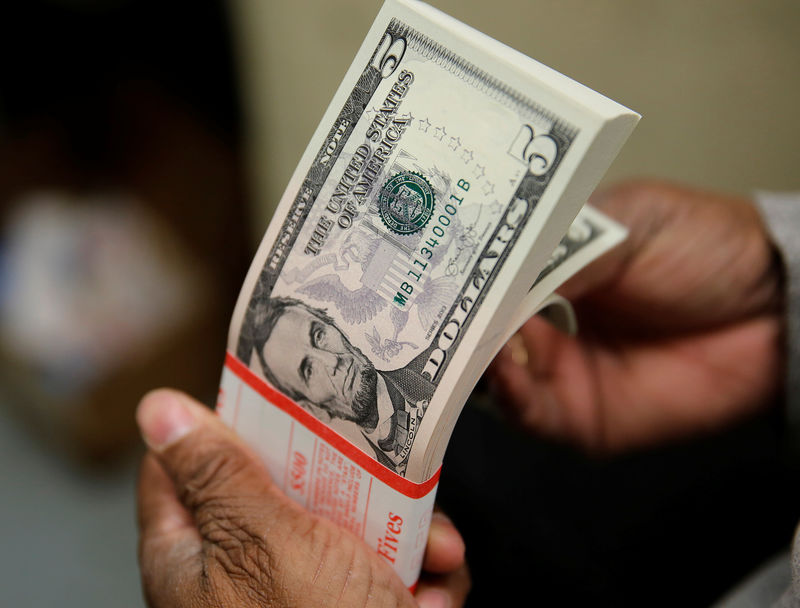By Matt Scuffham and Pete Schroeder
NEW YORK/WASHINGTON (Reuters) - An annual stress test of banks introduced by U.S. regulators after the 2007-09 financial crisis to prevent taxpayer bailouts has become a fight over how quickly lenders can return capital to shareholders.
Helped by a buoyant U.S. economy, tax cuts and record profits, the country's biggest banks are ramping up payouts to shareholders through dividends and share buybacks. But their plans to return capital are pushing the boundaries of what regulators will tolerate, analysts and regulatory sources say.
The Federal Reserve on Thursday approved the capital plans of 18 banks in this year's test, although it placed conditions on the U.S. operations of Credit Suisse (SIX:CSGN) Group AG after identifying weaknesses in its capital planning.
JPMorgan Chase & Co (NYSE:JPM), one of the best capitalized U.S. banks, had to resubmit its proposal after the Fed assessed its initial plan would result in it falling below the minimum capital it is required to hold to cope with a downturn.
The bank eventually won the regulator's approval for a capital plan that will increase its quarterly dividend to 90 cents per share from 80 cents, starting in the third quarter, and buy back up to $29.4 billion of shares over the next year.
The Fed began publishing the results of the capital planning check in 2012. It is the second part of the Fed's annual test of banks, assessing what level of cash banks can return to shareholders through dividends and share buybacks.
Federal Reserve Chairman Jerome Powell has emphasized that banks are in a much stronger position now than they were before the crisis and has said he believes the amount of capital reserves in the banking system is appropriate.
With the Fed no longer pushing lenders to increase capital reserves each year, and banks growing comfortable with the stress testing process, they may be getting more aggressive with their capital plans, a senior Fed official said Thursday.
As they push to maximize shareholder payouts, banks run a greater risk of seeing their capital levels dip below regulatory minimums when run through a hypothetical economic downturn. That's what happened to JPMorgan this time. After the bank resubmitted its plan with a lower payout rate, it was approved.
The Fed permits banks to adjust their capital plans once after submitting them to stress testing, but only if their initial plans prove to be too aggressive, giving the firms some incentive to push the limit.
"It really allows banks to push to the boundaries," said Adam Gilbert, global regulatory leader of PwC's financial services advisory practice. "It enables them to be strategically aggressive."
There is little doubt that banks are becoming more headstrong. Fitch analyst Bain Rumohr said that, for this year, U.S. banks' payout ratios - the percentage of earnings they payout as dividends and share buy backs - have risen to over 100% of earnings, compared with 80% to 90% last year.
In essence, some banks are planning to pay out more in share buybacks and dividends than they will earn in the current year.
JPMorgan has repurchased more than $80 billion worth of stock since July 2016 and has been upping its rate of buy backs each year. Fitch estimates its projected payout ratio to be 110% if it fully executes its share buy-back plan this year.
Goldman Sachs Group Inc (NYSE:GS) and Morgan Stanley (NYSE:MS) received conditional passes in the test last year, meaning they could not increase their capital distributions to shareholders.
Rumohr said he anticipates more banks could be asked to resubmit plans going forward if current market trends continue.
"We wouldn't be surprised to see one to two banks have to resubmit during each year's process," he said.
(The story refiles to add dropped word in paragraph 11)
